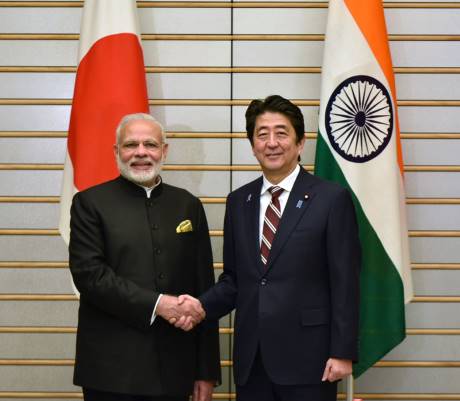The prime ministers of India and Japan have welcomed the signature today of a nuclear cooperation agreement between the two countries. Narendra Modi and Shinzo Abe said the agreement reflects a new level of mutual confidence and strategic partnership for clean energy, economic development and a peaceful and secure world.
 |
| Modi and Abe meet in Japan (Image: Kantei) |
The agreement between the two countries was signed during a visit by the Indian prime minister to Japan and has taken six years of negotiations. Its signature follows the signing of a memorandum on cooperation by the two leaders in December 2015. It will open the door for India to import Japanese nuclear technology. India has been largely excluded from international trade in nuclear plant and materials for over three decades because of its position outside the comprehensive safeguards regime of the Nuclear Non-proliferation Treaty (NPT).
Modi said signing of the Agreement for Cooperation in the Peaceful Uses of Nuclear Energy marked a "historic step in our engagement to build a clean energy partnership", adding that their cooperation would help "combat the challenge of climate change".
In a joint statement, the two prime ministers also reaffirmed their commitment to work together for India to become a full member of the international Nuclear Suppliers Group (NSG), as well as of the Wassenaar Arrangement and the Australia Group, with the aim of strengthening international non-proliferation efforts.
In a separate statement, Modi thanked Abe for his support for India's membership of the NSG. Membership of the NSG, which seeks to prevent nuclear proliferation by controlling the export of materials, equipment and technology that could potentially be used to manufacture nuclear weapons, has up to now been limited to NPT signatories. Following the approval of an India-specific safeguards agreement by the International Atomic Energy Agency, an exception under NSG rules and bilateral nuclear cooperation deals, India formally applied to become a member of the NSG in May.
Researched and written
by World Nuclear News







_97013.jpg)






